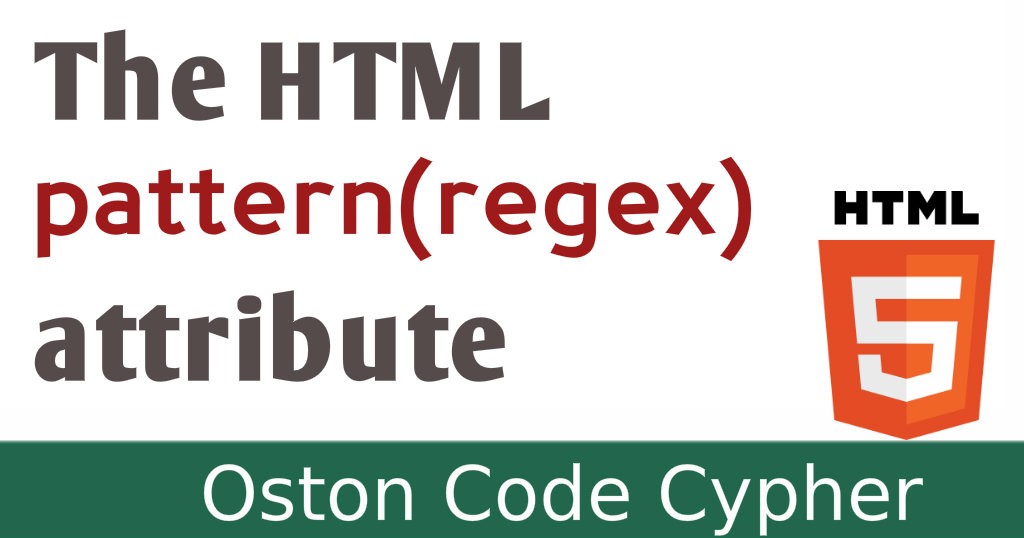The HTML pattern attribute - regular expressions on input fields

Make money for being or staying online/internet.
You will get a $50 starting gift when you join using this code: Exode4LKrbujm1z and link:: GET THE OFFER NOW!!
In this post we take a look at the new "pattern" attribute in HTML which allows you to add custom validation to your input fields through the form of a regular expression pattern.
So for beginners to set the record straight it is possible to validate form input fields using html.The most common attribute that you may be familiar with is the required attribute.
So what does required attribute do?
The required attribute makes the input field compulsory,so the user can't submit form data without filling the input field required.
Common Attribute Usage
<form> <input type="text" placeholder="username" required> </form>
HTML "pattern" attribute
In our example below we are validating the username input field.Here we check if the Username is between 5 to 10 in length.
<form>
<input type="text" pattern="[A-Za-z\d]{5,10}" title="Username should be between 5 to 10 in length and contain atleast a number" required>
<input type="submit">
</form>
Example Explained
Let's look at each part in this pattern attribute pattern="[A-Za-z\d]{5,10}"
A-Za-z - This indicates that both Uppercase and Lowercase letters are allowed.
\d - This indicates that the username should atleast contain a nubmber.
{5,10} - This specifies the minimum - maximum length of the username.It is user defined so you can set your own limit.
Save up to 80% with this Domain & Shared Hosting package deal! 80% OFF - GET OFFER NOW
Related Post(s)
» The HTML pattern attribute - regular expressions on input fields
» HTML explained in a few lines
» How to force the browser to cache a page?
» How to Create a Nav Bar | HTML & CSS Tutorial | Source Code
collections_bookmark Category :: Htmldate_range Published :: 5 years ago At: 03:23 AM
event_note Detailed Date :: Jan 10th, 2019
person Writer :: Code

